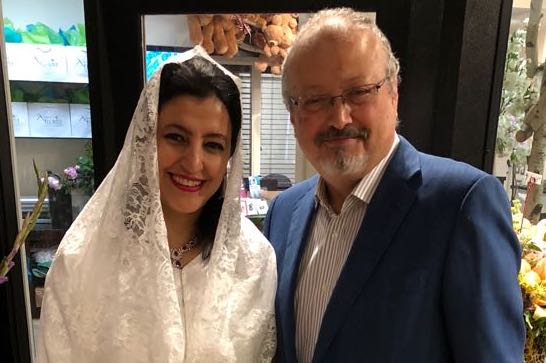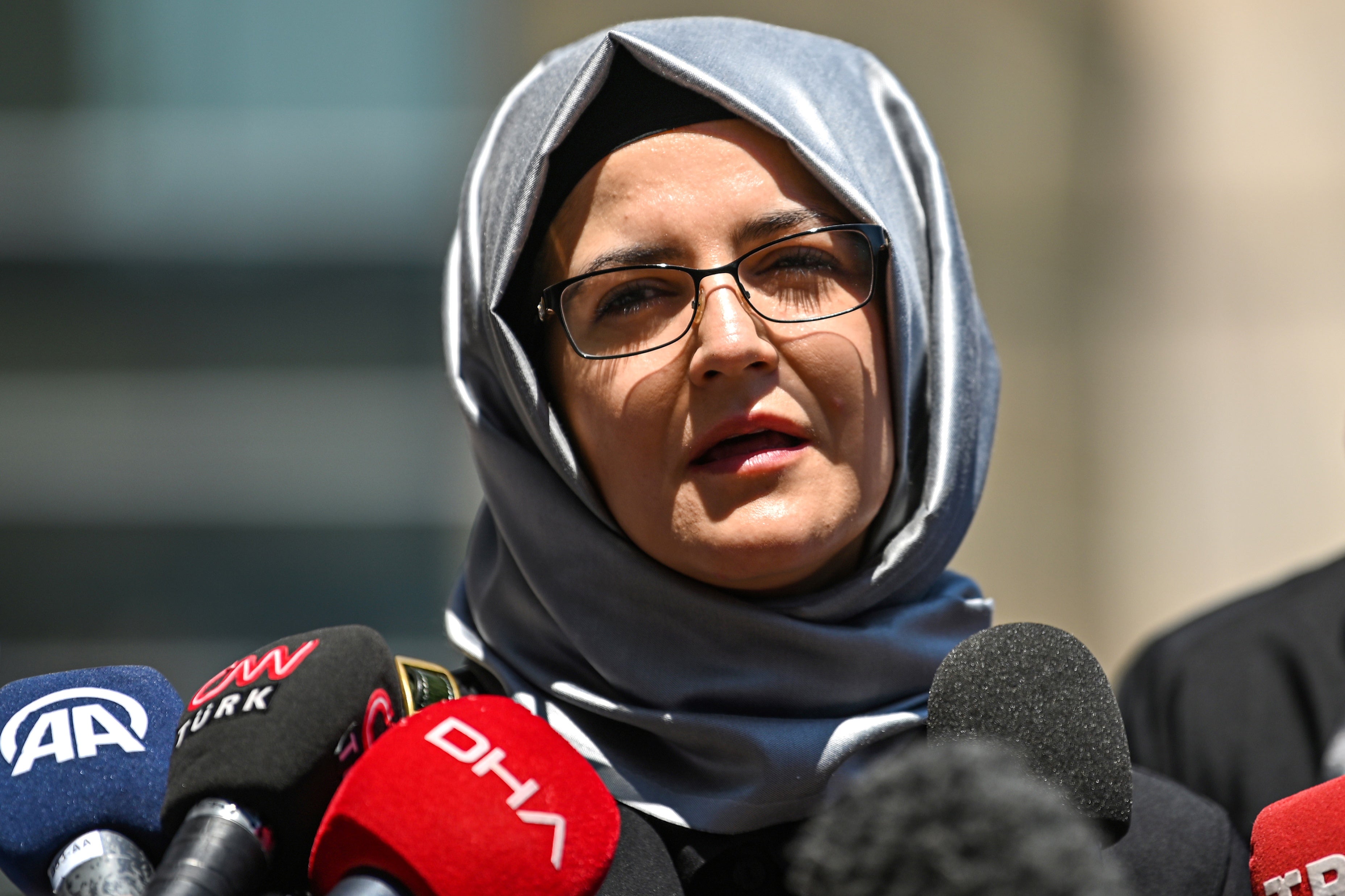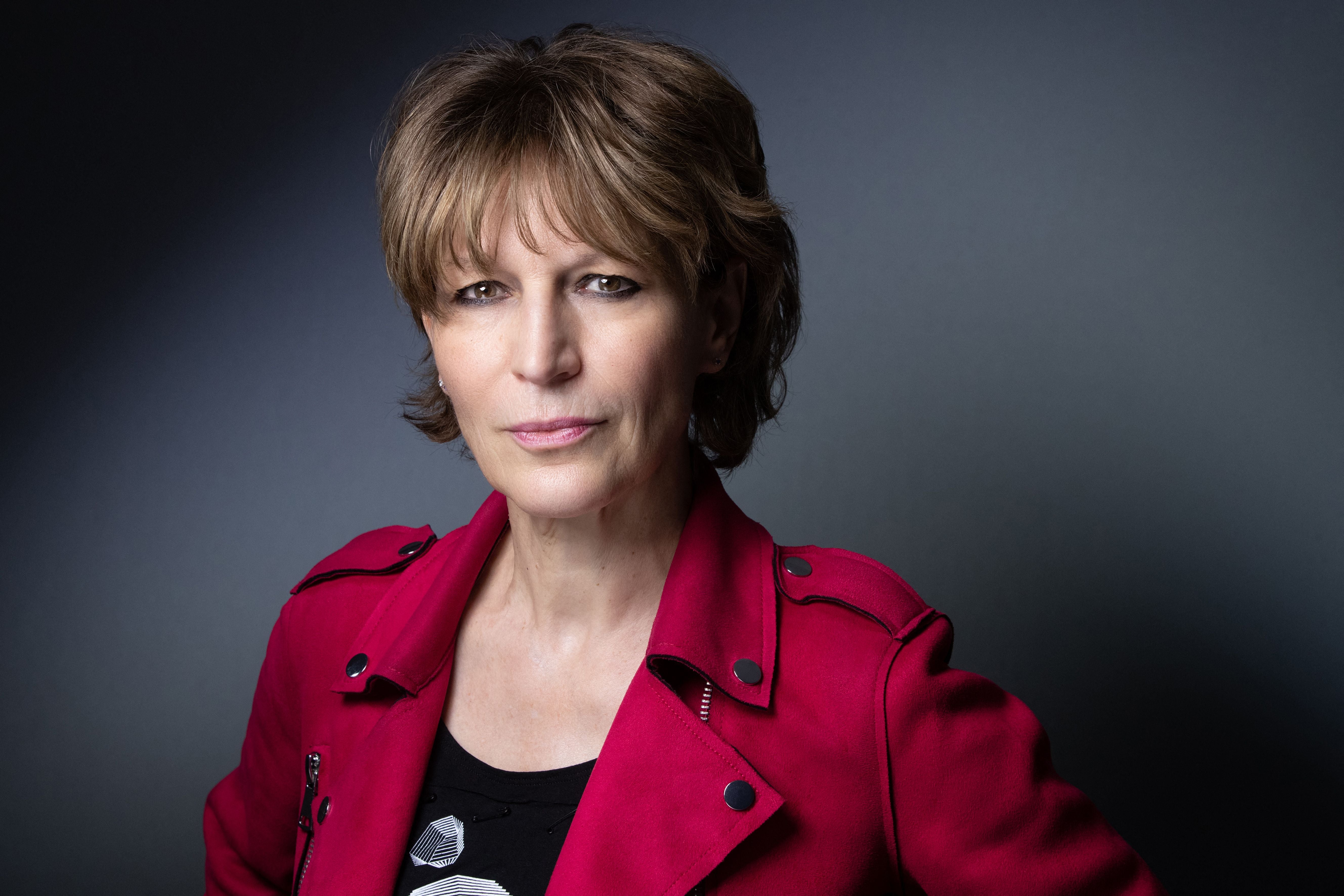Jamal Khashoggi’s secret wife says they were spied on before his killing: ‘We were monitored by a lot of countries’
Three years after murder, Hanan El-Atr asks world to secure justice for slain journalist, writes Andrew Buncombe


The secret wife of Jamal Khashoggi has said she believes she and her husband were spied on by “many countries” in the months before the journalist’s murder.
In the three years since the Washington Post columnist was murdered, much attention has been paid to Hatice Cengiz, the Turkish student who accompanied him to the Saudi consulate in Istanbul, and whom he had reportedly asked to marry him.
Yet three months before his murder by Saudi agents in the kingdom’s consulate in Istanbul, Khashoggi had wed Hanan El-Atr, 52, an Egyptian woman, in a Muslim ceremony in northern Virginia.
Neither she nor Ms Cengiz knew about each other until he was murdered, but it has been revealed that both of their phones were targeted by the notorious NSO Group’s Pegasus spyware in the months surrounding the killing.
Ms El-Atr spent two years, and had to file a lawsuit, before she could obtain the certificate proving she and the famed journalist were married on 2 June 2018 in Alexandria, an event of which she has many photographs. She wore a full white wedding gown, and carried a bouquet of white roses.
“My message is that his sacrifice of his life was not for his own benefit, but to help those who are behind bars in Saudi Arabia,” Ms El-Atr told The Independent from an undisclosed location in the DC area. “My husband, until the last minute, was crying out for [political prisoner] Essam al-Zamil, and others in jail.”
She added: “I appreciate the whole world values his sacrifice now, and I want their help, and the journalists’ help, to bring [about] his mission and vision by at least [having them] release the people behind bars in Saudi Arabia.”
Khashoggi’s marriage to Ms El-Atr, who had lived in Dubai and was an attendant for Emirates Airlines, underscored the somewhat complicated life he led – something that has emerged since his death.
One close friend of Khashoggi said they believed the journalist had been trying to do the correct thing by different people and did not doubt his love for both women was real.
“It’s possible to love more than one person at the same time, perhaps in a different way,” said the friend, who asked to speak anonymously.
Ms El-Atr has applied for political asylum in the US after she said she and her family were harassed by the Emirati authorities after they learned of her relationship with Khashoggi. The UAE and Saudi Arabia, both absolutist monarchies, have close political and strategic ties.

Ms El-Atr said she was at work when she learned Khashoggi had gone missing and was then declared dead.
“When it was confirmed, I couldn’t stand on my feet,” she added.
“In fact, one manager from Emirates saw me and [they had to] carry me.”
It was at that time Ms El-Atr learned of Ms Cengiz, who had accompanied Khashoggi to the Saudi consulate in Istanbul, apparently to obtain documents to prove his previous marriages in the kingdom were legally dissolved, to allow them to marry.
“I don’t know anything about this lady, and I don’t know … maybe she only accompanied my husband to the consulate. But my husband was with me three days before he went to Istanbul, and we were talking though his trip,” she adds.
“I’m not clear who this woman is, what is behind her, or what is motivates her.”
Ms El-Atr said Khashoggi had previously had more than one wife at the same time, an arrangement that is not uncommon in some Muslim societies.
“I wasn’t too happy. But until now, I don’t know what is the agenda behind her,” she said.
While Ms Cengiz has been vocal in demanding justice for a man she described as her fiancée, Ms El-Atr said the two women had not spoken and that she saw no point in approaching her.
This July, The Washington Post revealed, as part of an international investigation involving Amnesty International, that Ms El-Atr, Ms Cengiz, and Ms Cengiz’s British lawyer, Rodney Dixon, had been targeted by NSO Group’s Pegasus spyware.
The Post had not only published Khashoggi’s columns, but has a strong record covering intelligence issues. Indeed, the newspaper was the first outlet to reveal, as far back as November 2018, the assessment of US intelligence that the journalist’s murder and dismemberment had been ordered by Saudi crown prince Mohammed Bin Salman. Saudi Arabia has adamantly denied this and said his killing was a “rogue” operation.
The Post said Ms El-Atr was targeted by a Pegasus user six months before his killing, but its analysis could not determine whether it had been successful. Ms Cengiz’s iPhone was successfully hacked by the spyware, produced by an Israeli company, days after Khashoggi’s murder on 2 October 2018. The phone of Ms Cengiz’s attorney, Mr Dixon, was targeted in 2019 but apparently was not successfully penetrated.
In May 2018, Ms El-Atr was stopped by the Emirati authorities on her return to Dubai and held under house arrest for 10 days. She said Khashoggi had sent her a message while she was being questioned, but that they already knew about their relationship.
“I believe I’ve been monitored by a lot of people, and my husband as well – I mean a lot of countries,” she said.
She said Khashoggi never told her he was being threatened or that he had been warned about any danger he was in.
“In fact, I was more security-conscious. I would put the chain on a door, when we went to sleep,” she said. “He used to laugh at me.”
Sarah Leah Whitson, a former senior executive with Human Rights Watch, and now executive director of democracy for the Arab World Now (DAWN), a group established by Khashoggi in Washington DC, said she was not startled by the revelations.
“I was not surprised that both were targeted by spyware,” she said. “And I expect the culprits [were] Saudi and UAE.”

In the summer of 2019, a report by UN special rapporteur Agnes Callamard concluded Khashoggi had been murdered by Saudi agents, his body disposed of, and that there was credible evidence of the liability of crown prince Mohammed bin Salman, known as MBS.
Ms Callamard said it was increasingly likely the US was aware of the threat to the journalist and must release what evidence it has.
Ms El-Atr, who left the UAE in February last year, said the couple’s relationship turned romantic in March 2018, when Khashoggi had invited her to visit him in Virginia to celebrate his birthday. They married in June that year, in a simple Muslim ceremony, an event that was not immediately registered with the authorities. It took two years for her to obtain the certificate proving they were married, and followed a lawsuit against the imam who performed the ceremony.
Ms El-Atr’s lawyer, Randa Fahmy, declined to speculate why it took so long. The imam, Anwar Hajjaj, did not respond to inquires. Two guests at the wedding, citied as witnesses in the lawsuit, also did not respond to inquiries.
Several lawsuits have been launched since Khashoggi’s murder. Ms Cengiz has sued MBS, while two other groups have sued the US government seeking any information it had about a threat to the journalist.
The foreign ministries of Saudi Arabia and the UAE did not respond to enquiries. The embassies in Washington DC of both nations also did not reply.
The NSO Group declined to comment further on what it termed “baseless claims”. In a previous statement it said: “Our technology was not associated in any way with the heinous murder of Jamal Khashoggi. We can confirm that our technology was not used to listen, monitor, track, or collect information regarding him or his family members.”
Ms Fahmy said that under Muslim law, Ms El-Atr, as Khashoggi’s sole wife, would be eligible to receive one-eighth of his estate but that no financial demand had been made against any individual or country.
Ms El-Atr insisted money was not her motivation for seeking to be recognised as Khashoggi’s wife. Rather, she said, she ought not to have to “live in shame”.
“Why not, why should the legitimate wife just disappear?” she said.
“The second thing is, I find it is my duty now to rectify a lot of things, building up about my husband, because he’s not here to answer about himself. I found there’s a lot of polarisation over my husband and [people] accusing my husband of being a traitor to his country, and that he was going to sell information about September 11.”
She added: “Finally, his legacy. My message is that the sacrifice of his life was not for his own benefit, but to help those who are behind bars in Saudi Arabia.”






Join our commenting forum
Join thought-provoking conversations, follow other Independent readers and see their replies
Comments